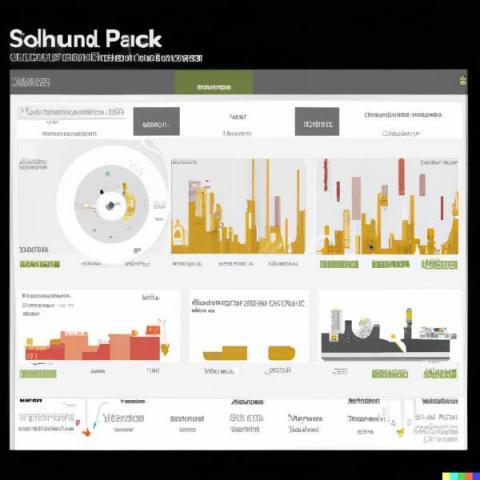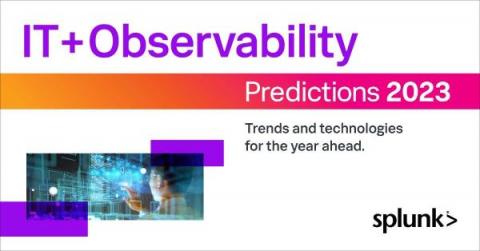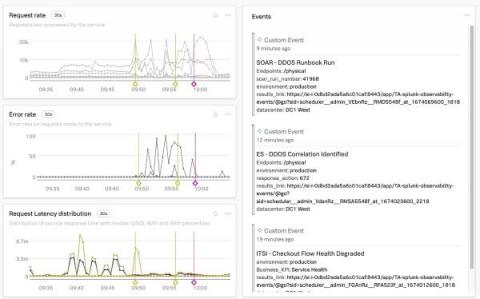Operations | Monitoring | ITSM | DevOps | Cloud
February 2023
Exploring DORA: Why creating a path to resilience maturity is a critical success factor for financial services organisations
Site Reliability Engineer: Responsibilities, Roles and Salaries
Get a smooth path to validation of your Splunk Cloud Platform deployment
Business Resilience: How To Build Resilience Strategically, Tactically & Operationally
The ability to continue business operations for the foreseeable future is a key metric from a financial standpoint. But from a risk management perspective, all dimensions of an organization’s strategic and operational framework must be analyzed in order to… The last part relates to business resilience — and it’s what we’re going to explore here. (This article was written by Joseph Nduhiu. See more of Joseph’s contributions to Splunk Learn.)
Splunk Incident Intelligence
Predictions: AI and Automation
Artificial Intelligence (AI) - or more specifically Machine Learning (ML) - and automation were big topics for many of our customers in 2022. Common reasons for the interest in AI and automation were to: increase efficiency, reduce manual processing, minimise human error and - especially for the use of ML - identify ‘unknown unknowns’.
Get More Out of Your Workload Pricing Investment with the Cloud Monitoring Console
How Structured, Unstructured & Semi-Structured Data Change Your Data Analytics Practice
Many business organizations begin their data analytics journey with great expectations of discovering hidden insights from data. The concept of unified storage — data lake technologies in the cloud — have gained momentum in recent years, especially with the exponential options for cost-effective cloud-based storage services. Big data is readily available. In fact, 2.5 quintillion (2.5 x 10^18 or 2.5 billion billion) bytes generated every day!
EMEA Predictions for 2023
Yes, it’s that time of year again. As the New Year’s resolutions fade and the planning cycles kick-in, technical leaders in various organisations are often asked to get out the crystal ball to inspire our teams or steer an excited Board.
A Snapshot of our IT Ops Predictions for 2023
Today executives and customers expect IT and digital services to be available and performant at all times; compromised availability or performance is no longer tolerable. Think about it; when was the last time a digital service was unavailable and it didn’t make the news or social media? When was the last time you visited a website that was unavailable and you waited for the outage to be over, rather than finding an alternative in the moment?
Communicating Context Across Splunk Products With Splunk Observability Events
When an IT or Security issue impacts a development team’s software how are they notified? Is your organization still relying on mass emails that lack context and most engineers have probably already filtered out of their inbox? Communicating between siloed tools and teams can be difficult. How would you like to put IT, Security, legacy processes, and business notifications specific to development teams right into one of their most important tools? Now you can!













